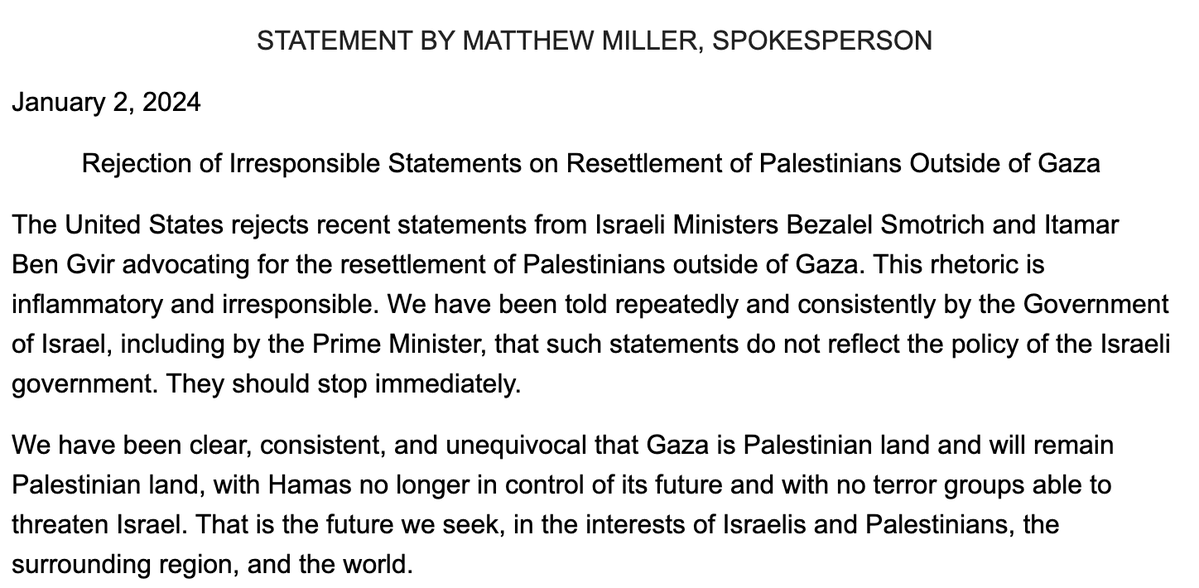Good morning. Congress will return to work tomorrow, Monday, and discussions over border security and a national security supplemental funding bill for Ukraine and Israel will start all over again.
Meanwhile, it was a heavy week in the Middle East, with the killing of militant group leaders in Lebanon and Iraq and a terrorist attack in Iran, all of which have the potential to transform into a wider regional conflict. You can read all about that in the ‘What I’m Reading’ section below.
In some lighter news, Lazo Magazine has an article out this week from Greece, where Joanna Kalifatis writes about one of the country’s most diverse neighborhoods and some of the structural barriers to assimilation immigrants face.
This journalism is possible thanks to the support of George Mason University’s Mercatus Center and its Pluralism and Civil Exchange program.
The neighborhood of Kypseli is experiencing a resurgence in popularity. That’s partly thanks to rising housing costs in central Athens, which led residents from other parts of the city to rediscover this once-popular Athenian enclave. The main pedestrian thoroughfare of Fokionos Negri is teeming with young people, families, and couples strolling along the street or passing their time in one of the many newly opened restaurants and cafes.
However, unlike during the neighborhood’s last heyday 30 years ago, the faces you pass on the street in Kypseli are now more diverse than ever. Next to old traditional Greek cafes and tavernas, there are Polish delis, African hair braiding salons, and Middle Eastern-owned and operated restaurants.
In a country as monoethnic as Greece, Kypseli is a beautiful anomaly. But for many residents of non-Greek descent, the reality of living here can still be challenging.
Continue Reading in Lazo Magazine.
If you can afford to support Lazo Magazine in 2024, either by donating or becoming a paid subscriber to this newsletter, I’d be very grateful. I’ve received dozens of pitches from writers I’d like to commission, but I can only do that with your support!
What I’m writing:
• I wrote about the Biden administration’s decision to fast-track weapons sales to Israel, bypassing Congress and drawing fire from his own party. I break down exactly what type of weaponry the U.S. has sent to Israel since Oct. 7. and where that weaponry is coming from. This story is unlocked and free to read.
• I spoke to Belarussian opposition leader Sviatlana Tsikhanouskaya about her recent trip to Washington and how the U.S. can support the Belarusian opposition. This interview is unlocked and free to read.
• My colleagues and I wrote about all the U.S. lawmakers who are retiring and how their departure will impact policy. This story is unlocked and free to read.
My weekly news blurbs:
What I’m reading:
• The United States has not observed “any acts that constitute genocide” in Gaza, State Department spokesperson Matthew Miller said. The remark follows the launch of genocide proceedings by South Africa at the International Court of Justice over Israel’s military campaign in Gaza. Reuters has the story.
• The resettlement of Palestinians from Gaza is becoming an official policy of the Israeli government, the Times of Israel reports. A senior Israeli official said Israel held talks with several countries, including Congo, about resettling Palestinians.
• Israeli Defense Minister Yoav Gallant outlined proposals for the governance of Gaza after the war, the Financial Times reports. “Gaza residents are Palestinian. Therefore, Palestinian bodies will be in charge, with the condition that there will be no hostile actions or threats against the State of Israel,” Gallant said.
• Russian President Vladimir Putin pledged to “intensify” attacks against Ukraine and said that Ukraine’s support from the West was the biggest obstacle to ending the conflict, the BBC reports.
• Russian President Vladimir Putin signed a decree to expedite citizenship for foreigners who enlist in Moscow’s military, the Associated Press reports.
• Authorities in Russia’s Belgorod region will help evacuate residents who wish to leave the city due to recent shelling, Meduza reports.
• Far-right, xenophobic movements are inciting anti-migrant raids in Russia, Bellingcat reports.
• Ukraine and Russia swapped hundreds of prisoners of war (POW) in the first swap in almost five months, following a deal brokered by mediators from the United Arab Emirates, Politico Europe reports.
• In a rare admission of its military operations in Crimea, Ukraine said it carried out attacks on a Russian military command post and a military unit in separate strikes on the Russia-occupied peninsula, saying it inflicted "serious damage" to Russia's defense system, Radio Free Europe reports.
• The Guardian’s editorial board writes that flawed elections in Serbia confirm Europe is being “strung along by a government intent on an authoritarian, ethno-nationalist agenda.”
• As Serbia backslides toward autocracy under President Aleksandar Vučić, the West’s commitment to the country’s democracy seems to have disappeared, argues Dragan Đilas, the president of the Party of Freedom and Justice, in an opinion piece for Politico Europe.
• As of January 1, holders of biometric Kosovar passports can travel visa-free for short stays to all 27 countries in the Schengen Area, the result of a 12-year "dialogue" with the European Commission, Radio Free Europe reports.
• BBC Travel has a piece on the Bulgarian town of Bansko and how it became a hub for digital nomads.
• France’s far-right National Rally claims a new report on Russian interference in French democracy is part of a “cabal” against its movement, Politico Europe reports. The comments were in response to a Washington Post investigation that revealed Moscow’s efforts to promote “political discord” in France.
• Senior Hamas leader Saleh al-Arouri was killed in a suspected Israeli strike in Beirut, the Wall Street Journal reports. Lebanese Prime Minister Najib Mikati condemned the strike, and the United Nations Interim Force in Lebanon said it is “deeply concerned” about rising regional tensions.
• A high-ranking militia commander was killed in an airstrike on the logistical support headquarters of the Popular Mobilization Force (PMF) in central Baghdad, a coalition of Iran-backed militia that is nominally under Iraqi military control, ABC News reports. The PMF claimed the United States was behind the attack.
• The U.S. military conducted a drone strike in Baghdad that killed a militia leader of an Iran-backed militant group whom Washington blamed for recent attacks on U.S. personnel, the New York Times reports. The Pentagon said U.S. forces took “necessary and proportionate action” in “self-defense” against the Harakat al-Nujaba group, adding that no civilians were harmed.
• Two explosions in Iran killed at least ninety-three people during a ceremony to commemorate the anniversary of Iranian Major General Qassem Soleimani’s death, Reuters reports. Iranian President Ebrahim Raisi vowed to retaliate against Israel for the attacks. The Islamic State later took responsibility for the blast.
• Attacks by Iran-backed militant groups – including the Houthis in Yemen, Lebanon’s Hezbollah, and Kataib Hezbollah in Syria and Iraq – have been coordinated and calibrated following meetings where the groups “discuss updates and progress on all the fronts and how strategically the operations benefit each front,” an official with Kataib Hezbollah said. The Washington Post has the story.
• The United States and 12 other allies issued what is widely considered a final warning to the Houthi group for its attacks on ships in the Red Sea, the Associated Press reports.
• Israel’s supreme court struck down a divisive judicial overhaul law in an 8-7 ruling, the Wall Street Journal reports. The law would have removed the court’s powers to overturn government decisions that the court deemed to be “unreasonable in the extreme.”
• China complained to Myanmar after five people were injured by artillery shells launched during battles between rebel groups and the ruling junta that strayed into a Chinese town near the border, Reuters reports.
• The Diplomat has an interesting piece on the Myanmar National Democratic Alliance Army (MNDAA), a Chinese-speaking rebel group in northeastern Myanmar.
• Myanmar’s military government will release 9,652 prisoners, including 114 foreign prisoners, the state media reported. Reuters has the story.
• North Korean leader Kim Jong Un’s young daughter, believed to be around 10 years old, is his “most likely” successor, the South Korea National Intelligence Service (NIS) has said. The BBC has the story.
• Sweden will withdraw aid to Mali over the country’s stance toward Russia, the Kyiv Independent reports.
• Ethiopia took the first legal steps to gain future access to the sea by signing a memorandum of understanding with the self-declared republic of Somaliland, the BBC reports.
• Former President Donald Trump’s businesses received at least $7.8 million from 20 foreign governments, including China and Saudi Arabia, during his presidency, according to a new report by Democrats on the House Oversight Committee.
Interesting statements:
You can contact me for any reason: c.maza@protonmail.com










